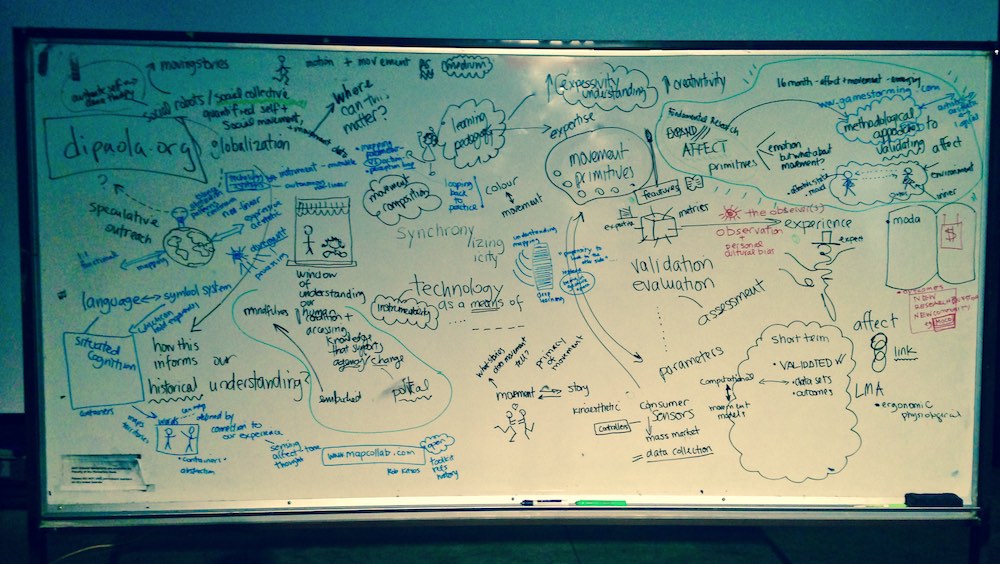We have been invited at Simon Fraser University (SFU) in Vancouver for the May Residency (May 24-28, 2016). The residency brings together researchers and artists exploring movement analysis, dance, music technology, robotics, machine learning, and sensorimotor learning.
The May Residency is an annual meeting part of the Moving Stories project led by Thecla Schiphorst:
http://movingstories.ca/events/movement-futures-may-residency-2016
During the workshop, we presented an overview of the research on sensorimotor learning from the viewpoint of cognitive psychology and music psychology. Then we presented our ongoing experimental study on music skill acquisition through motor task variations.
Abstract of the talk
Motor learning has long been studied in Cognitive Psychology and Neurosciences. However, most of these studies focus on simple motion tasks, which makes unclear how their results could generalise to more complex activities including music or dance. Particularly, in music performance, motor learning has been mostly tackled by comparing expert and novice performances leaving unexplored the underlying mechanisms of motor learning. In my talk, I will start by a literature review on (sensori-)motor learning in neurosciences, experimental psychology and psychology of music. Then I will introduce a work in progress aiming to examine mechanisms of motor learning in music performance. Finally, I will discuss insights in music pedagogy and potential transfer-of-knowledge to other practices such as dance.
